This post may contains affiliate links. Read our full disclosure here.
The first time I tried raspberry wine, I couldn’t believe what I’d been missing. This vibrant fruit wine offers a totally different experience compared to traditional grape varieties, and it’s quickly becoming my go-to recommendation for friends looking to shake up their wine routine. Raspberry wine delivers a perfect balance of bright fruitiness and refreshing acidity that makes it incredibly versatile for everything from casual sipping to fancy food pairings.
Whether you’re a seasoned wine enthusiast or just starting to explore beyond your comfort zone, raspberry wine deserves a spot in your collection. In this guide, I’ll walk you through everything you need to know about this delightful berry wine – from how it’s made and what it tastes like to the best food pairings and serving tips that’ll help you get the most from every glass.
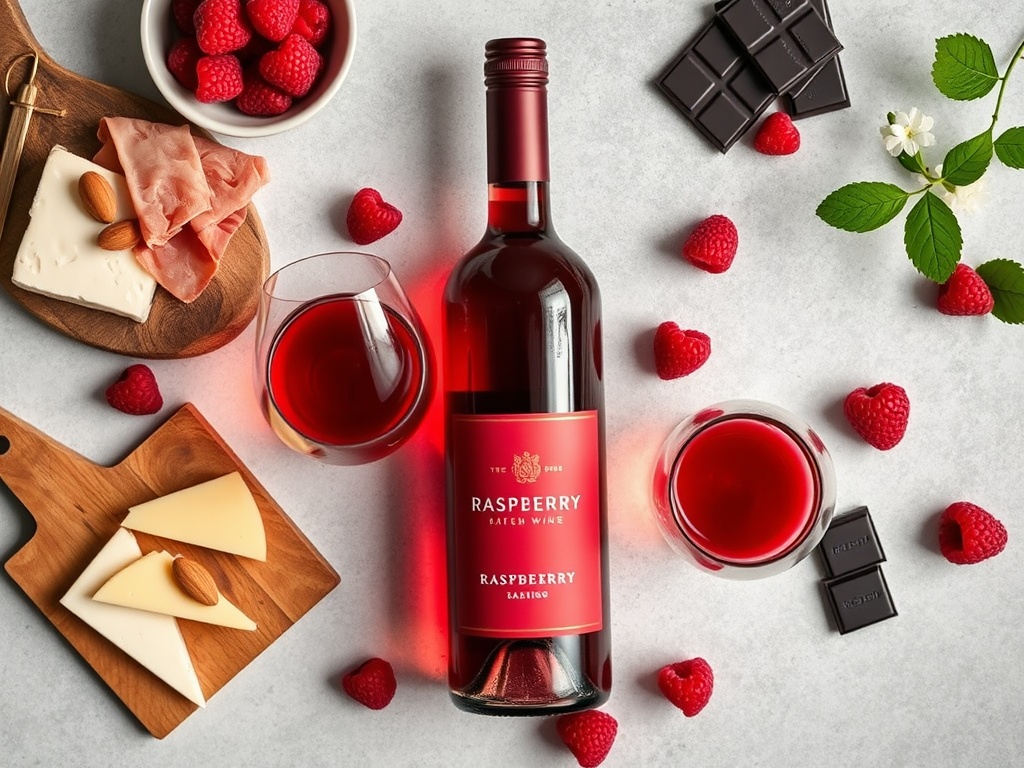
What Is Raspberry Wine?
At its core, raspberry wine is exactly what it sounds like – wine made from raspberries instead of grapes. It belongs to the broader category of fruit wines, which includes everything from blueberry to peach wine. The production process shares similarities with traditional winemaking, but with our beloved ruby-red berries taking center stage.
Winemakers start by crushing fresh or frozen raspberries to release their juice and natural sugars. Then comes fermentation with specialized yeasts that transform those sugars into alcohol. Depending on the style, additional sugar might be added to balance the naturally high acidity of raspberries or to achieve a sweeter finished product. Since raspberries have less natural sugar than grapes, this balancing act is crucial for creating a harmonious wine.
Most raspberry wines fall in the 10-13% alcohol content range, making them similar to many traditional grape wines in strength. However, dessert-style raspberry wines might have lower alcohol content, especially if fermentation is stopped early to preserve more natural sweetness. The finished product delivers a beautiful ruby-red color and a distinctive aroma that’s unmistakably raspberry-forward.
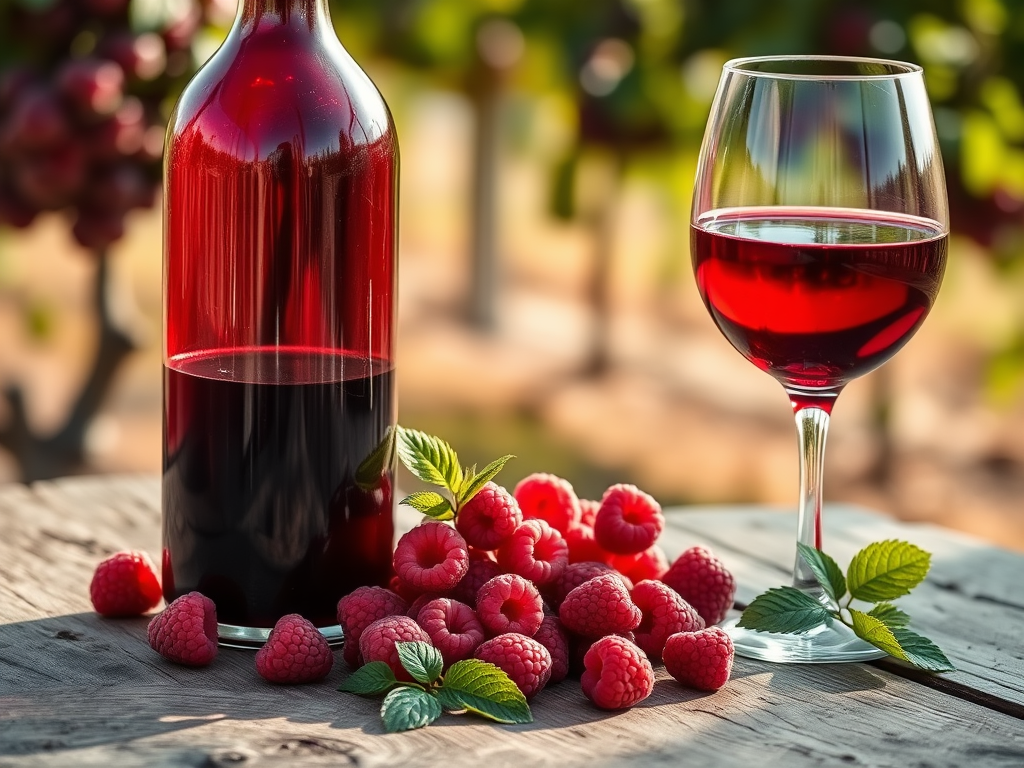
The Unique Flavor Profile of Raspberry Wine
When you take your first sip of raspberry wine, your taste buds are greeted with an explosion of bright, juicy flavors. Unlike many grape wines that might require some “getting used to,” raspberry wine delivers an immediately recognizable taste that connects directly to the fresh fruit itself. It’s like raspberries in liquid form, but with complex depth that only fermentation can create.
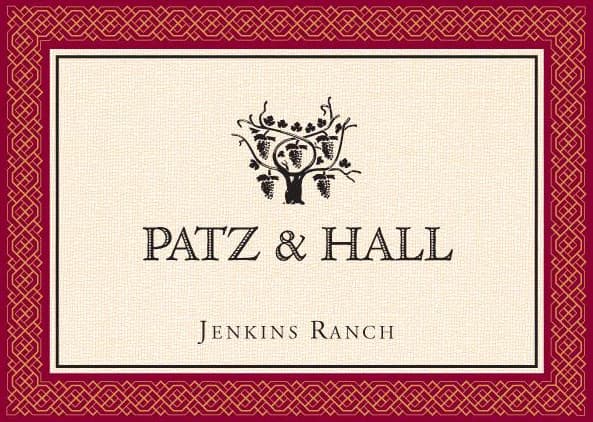
The flavor profile typically includes pronounced tartness balanced with fruity sweetness. You’ll notice that raspberry’s natural acidity gives the wine a refreshing zing that prevents even sweeter varieties from becoming cloying. Some bottles might showcase secondary notes depending on production methods – hints of other red berries, subtle vanilla if oak-aged, or even light floral qualities.
Is raspberry wine always sweet? Not necessarily, though most commercial versions do tend toward the sweeter side. Semi-sweet to medium-sweet styles are most common, but you can find drier versions that highlight the fruit’s natural tartness. If you’ve tried blueberry wine before, you’ll notice that raspberry wine typically brings more pronounced acidity and brightness to the palate – it’s got more “pop” to it.
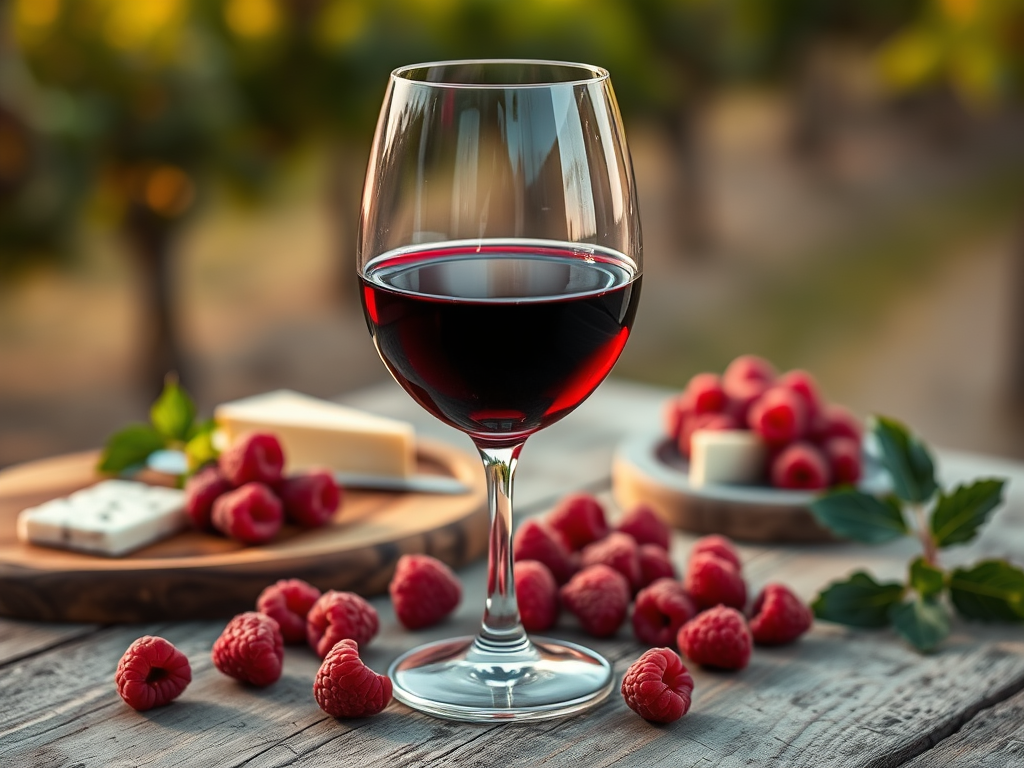
Best Raspberry Wine Recommendations
Ready to dive into the world of raspberry wine? I’ve rounded up some standout bottles worth trying. St. James Winery produces a consistently excellent raspberry wine that balances sweetness with authentic fruit character. It’s widely available on Wine.com and makes a perfect introduction to the category – bright, flavorful, and approachable even for those who don’t consider themselves “wine people.”
For something a bit more sophisticated, look for Chateau Larose-Trintaudon’s Raspberry Wine from France. This European take offers a slightly drier profile with more complexity than many American versions. The French winemaking tradition brings out subtle notes beyond just the primary fruit flavor, creating a more contemplative drinking experience.
If you enjoy dessert wines, don’t miss Bonny Doon Vineyard’s Framboise. This rich, velvety dessert raspberry wine is intentionally made in a sweeter style that pairs beautifully with chocolate desserts or can be enjoyed on its own after dinner. The concentration of flavor makes even a small glass deeply satisfying.
For those who enjoy exploring fruit wines beyond raspberry, you might also want to check out blackberry wine, which offers a similar berry-forward experience but with darker fruit notes and often a more substantial mouthfeel. Both styles showcase what makes fruit wine so appealing – direct, honest fruit character transformed through the magic of fermentation.
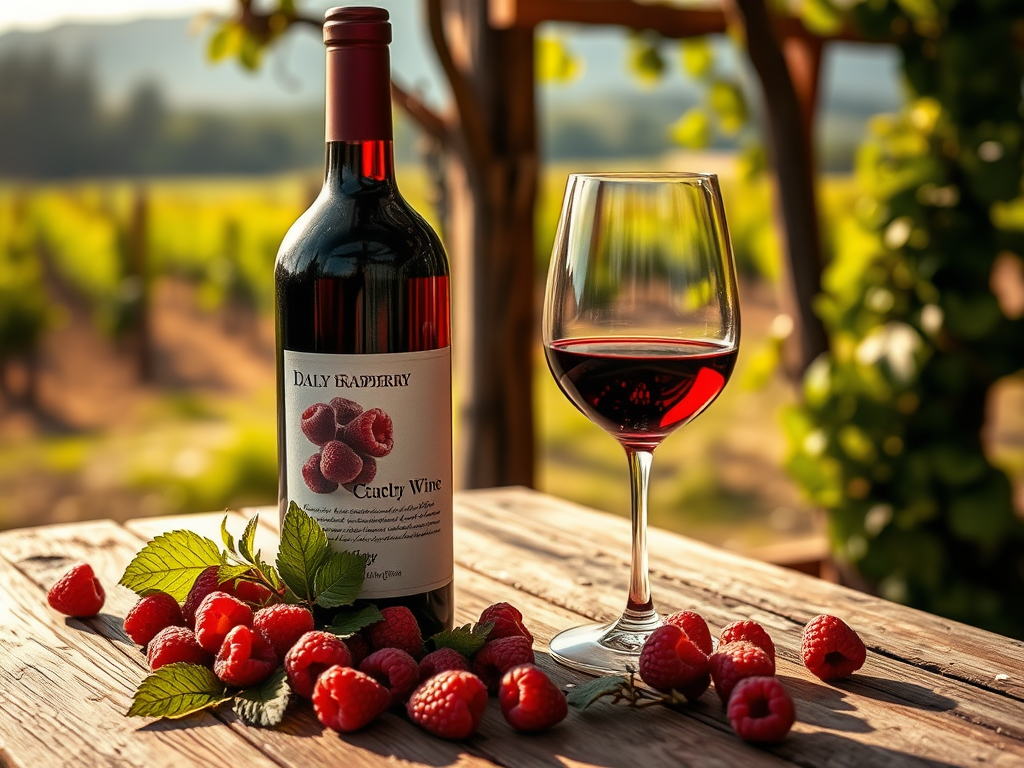
Perfect Food Pairings for Raspberry Wine
Finding the right foods to pair with raspberry wine is all about balance. The wine’s fruity sweetness and bright acidity make it surprisingly versatile at the table. One of my favorite combinations is raspberry wine and cheese – the wine’s tartness cuts through rich, creamy cheeses like brie or goat cheese beautifully. Add some toasted almonds and dried cranberries to your cheese board, and you’ve got a match made in heaven.
For dinner pairings, think about foods with complementary or contrasting elements. Raspberry wine performs wonderfully with anything featuring balsamic vinegar – try a grilled chicken breast with balsamic glaze or a spinach salad with balsamic dressing. The vinegar’s sweet-tart profile harmonizes with similar qualities in the wine. Duck with a fruit sauce also pairs exceptionally well, as the wine’s fruity notes complement the rich meat while the acidity cuts through the fattiness.
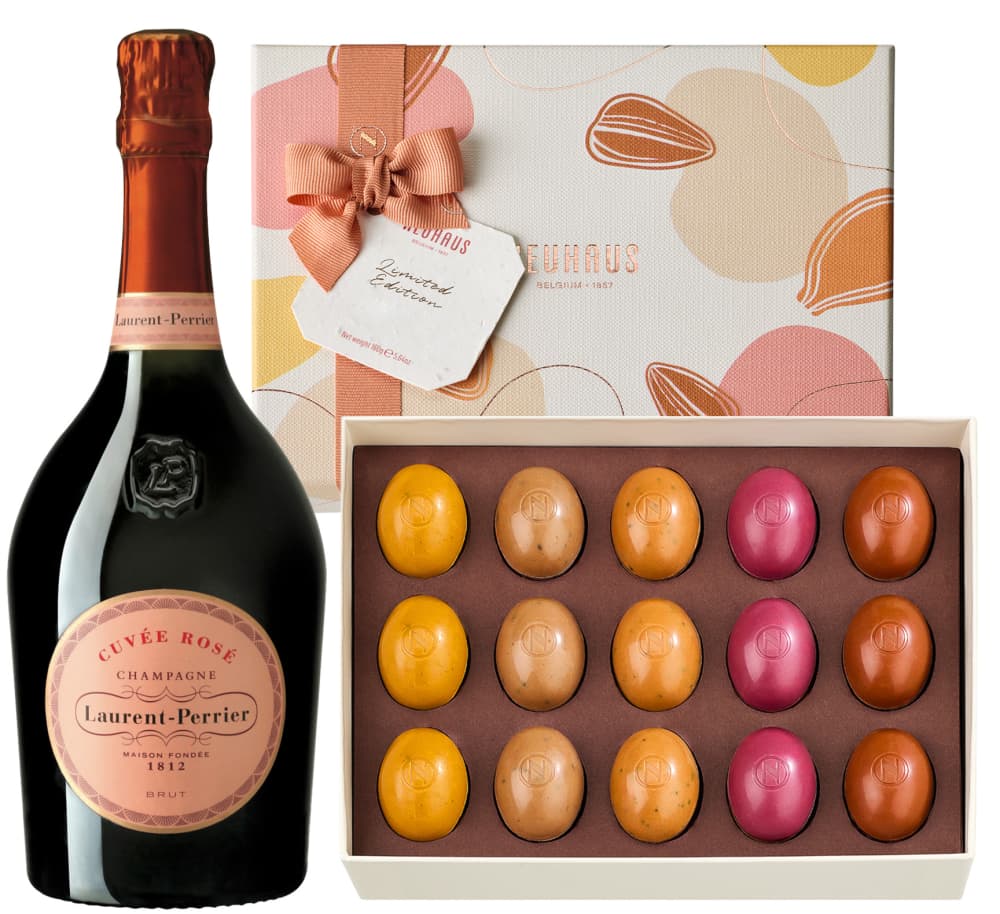
When it comes to desserts, raspberry wine shines with dark chocolate creations. The slight bitterness in the chocolate plays off the wine’s sweetness while complementing the berry flavors. Cheesecake topped with fresh berries is another winning combination – the wine’s acidity balances the rich creaminess of the cheesecake. For more inspiration on pairing desserts with wine, check out dessert wines that will change your night.
Understanding the fundamentals of pairing can help you create your own successful combinations. The basic principle is to consider both complementary and contrasting elements between your food and wine. For a deeper dive into this approach, explore food and wine pairing fundamentals that apply to all wine types, including fruit wines.
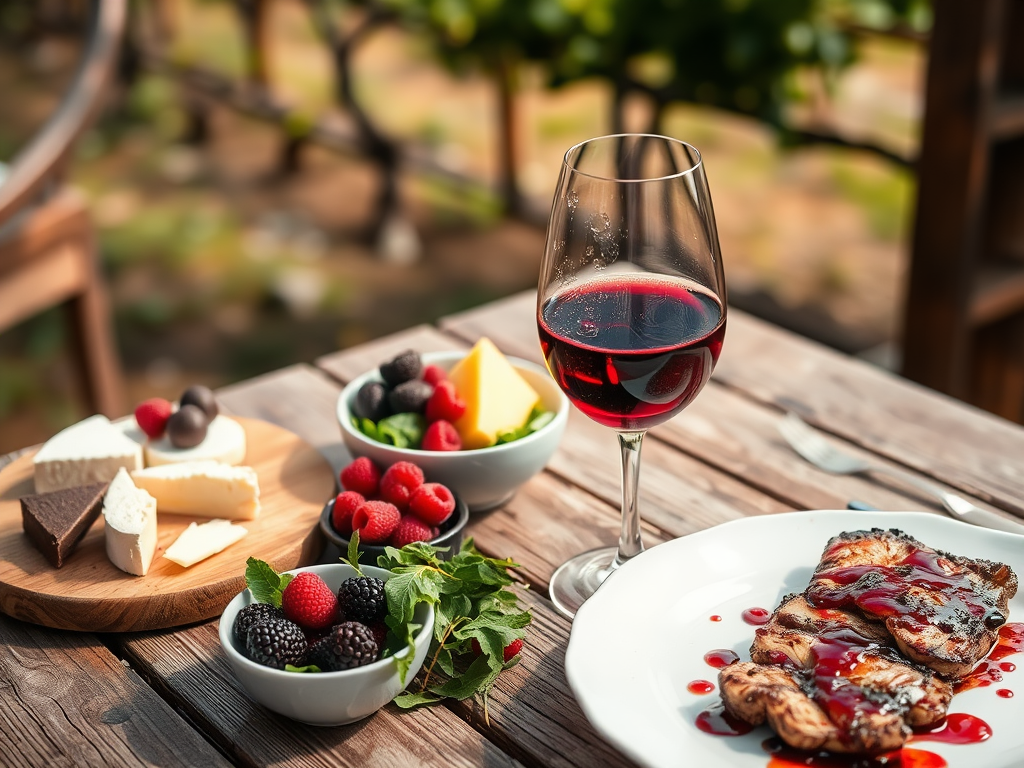
Serving Tips for Raspberry Wine
To get the most enjoyment from your bottle of raspberry wine, proper serving is key. First and foremost, temperature matters – serve it chilled, but not ice-cold. Aim for around 50-55°F (10-13°C), which is slightly warmer than your refrigerator’s standard setting. This temperature range highlights the wine’s fruity brightness without suppressing its aromatic qualities. If you’re serving a dessert-style raspberry wine, you can go a bit colder to balance the sweetness.
When it comes to glassware, you don’t need anything fancy – a standard white wine glass works perfectly. The slightly tapered opening helps concentrate the berry aromas while providing enough room for the wine to breathe. Avoid large, wide-bowled glasses where delicate aromas might dissipate too quickly.
One of my favorite ways to enjoy raspberry wine is in refreshing cocktails, especially during warmer months. Try a simple raspberry wine spritzer by mixing equal parts wine and sparkling water with a squeeze of lime and some fresh mint leaves. For something a bit more festive, create a raspberry wine sangria with sliced fruits like peaches and strawberries. The wine’s natural fruity character makes it an excellent base for summer cocktails that aren’t overwhelmingly alcoholic.
Looking for quick, casual pairings for your raspberry wine? Don’t overlook simple snacks – the right munchies can transform your wine experience. For some creative ideas, check out these snack and wine pairings that work wonderfully with fruit wines like raspberry.
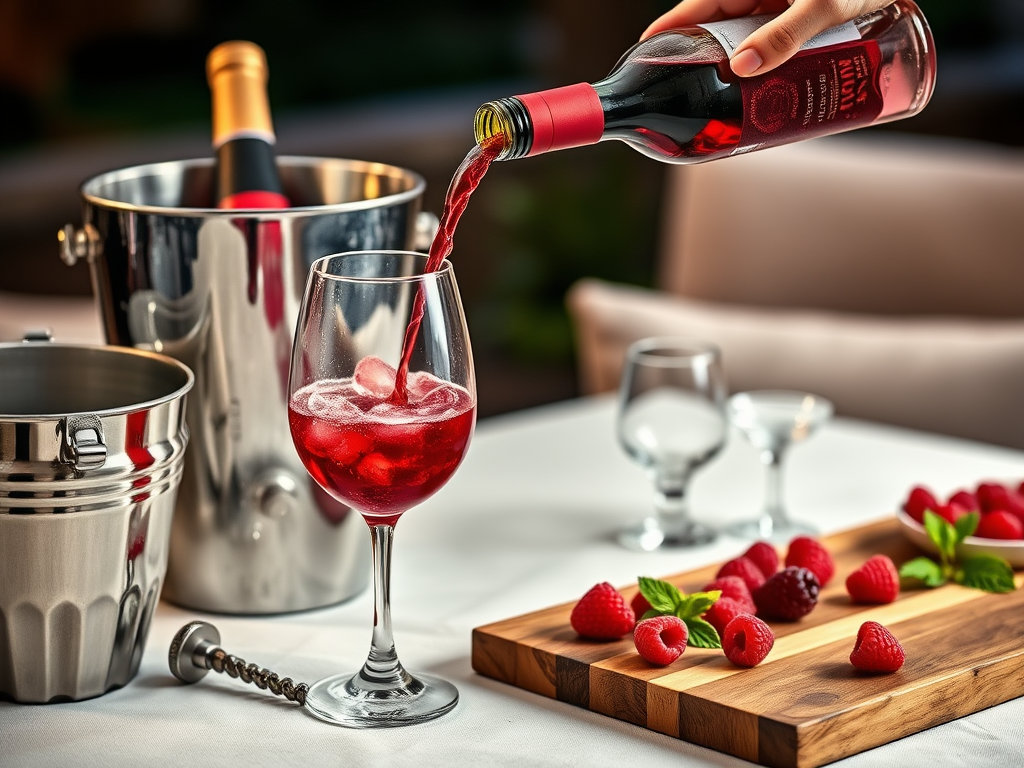
Raspberry Wine vs. Grape Wine: What’s the Difference?
If you’re used to traditional grape wines, raspberry wine offers a distinctly different drinking experience. The most obvious difference is in the flavor profile – raspberry wine delivers more direct, identifiable fruit character than most grape wines. While wine experts might talk about “raspberry notes” in a Pinot Noir, raspberry wine actually tastes unmistakably like raspberries, with all their juicy, tangy glory.
The acidity profile is another key difference. Raspberries naturally contain more acid than many grape varieties, giving the wine a brighter, zestier quality. This pronounced acidity can make raspberry wine feel more refreshing and food-friendly in certain contexts, particularly with rich or creamy dishes that benefit from that acidic cut-through.
Tannin structure also differs significantly. Grape skins provide the tannins that give red wines their characteristic astringency and aging potential. While raspberry wines may have some natural tannins from the berry seeds and skin, they’re generally much lighter in this department. This makes them more approachable for those who find tannic red wines too mouth-drying.
Finally, there’s the sweetness factor. Most commercially available raspberry wines retain some sweetness, unlike the many dry styles available in grape wines. This makes raspberry wine particularly appealing to those who enjoy berry wines and other sweeter styles. It’s a perfect gateway for those transitioning from sweeter beverages into the wider world of wine.

Getting the Most from Your Raspberry Wine Experience
Looking to create a memorable raspberry wine moment? Consider hosting a fruit wine tasting party featuring raspberry wine alongside other berry wines. This side-by-side comparison helps highlight the unique characteristics of each fruit. Label your bottles, provide tasting notes, and watch as friends discover unexpected favorites. It’s a fun way to break out of the usual wine routine while expanding everyone’s palate.
Don’t be afraid to experiment with seasonal pairings throughout the year. In summer, raspberry wine alongside fresh berries and light salads creates a bright, refreshing experience. Come fall, try it with roasted root vegetables with a hint of sweetness, like caramelized carrots or sweet potatoes. Winter calls for heartier pairings – think dark chocolate desserts or even a cheese fondue where the wine’s acidity cuts through richness.
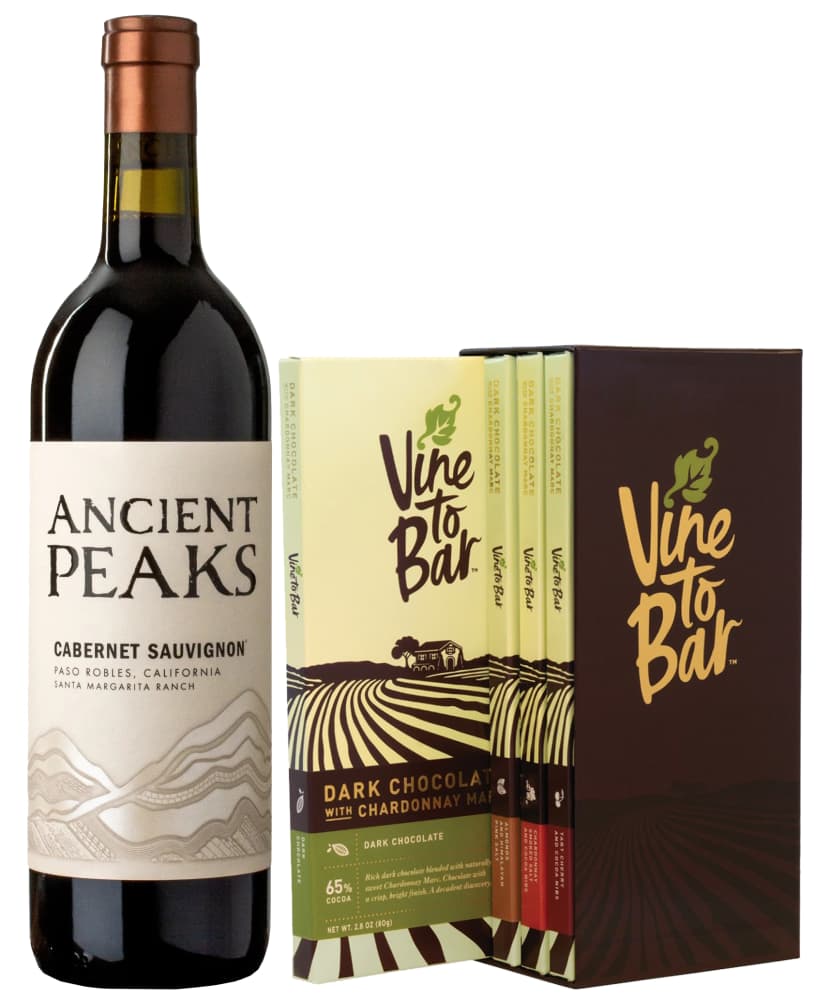
For the culinary adventurous, try cooking with raspberry wine. Reduce it down for a glaze on pork tenderloin, use it in place of red wine in poaching liquid for pears, or incorporate it into a vinaigrette for a fruity kick. The concentrated flavors bring a unique dimension to dishes that typical cooking wines can’t match.
Remember that raspberry wine is best enjoyed while relatively young – unlike many grape wines, it doesn’t typically benefit from extended aging. Most bottles are ready to drink when purchased and will show their best qualities within 1-2 years. Store unopened bottles in a cool, dark place, and once opened, keep refrigerated and consume within 3-5 days for optimal flavor.
A Fresh Perspective on Wine
Raspberry wine offers a delightful departure from the expected, bringing vibrant fruit character and versatility to your glass. Whether you’re pairing it with a carefully selected cheese board, mixing up refreshing summer cocktails, or simply enjoying it chilled on its own, this fruit wine deserves a spot in your regular rotation.
The beauty of raspberry wine lies in its accessibility – it connects directly to familiar flavors while still delivering the complexity and enjoyment we seek from wine. It bridges the gap between serious wine appreciation and pure, uncomplicated pleasure.
Ready to try it yourself? Start with one of the recommended bottles, invite some friends over, and prepare a few simple pairings. You might be surprised how quickly raspberry wine becomes a favorite for both special occasions and everyday enjoyment. And once you’ve explored raspberry wine, a whole world of fruit wines awaits – each offering its own unique expression of familiar flavors transformed through the winemaking process.
Have you tried raspberry wine before? What unexpected food pairing did you discover? Share your experiences in the comments – I’m always looking for new combinations to try!




